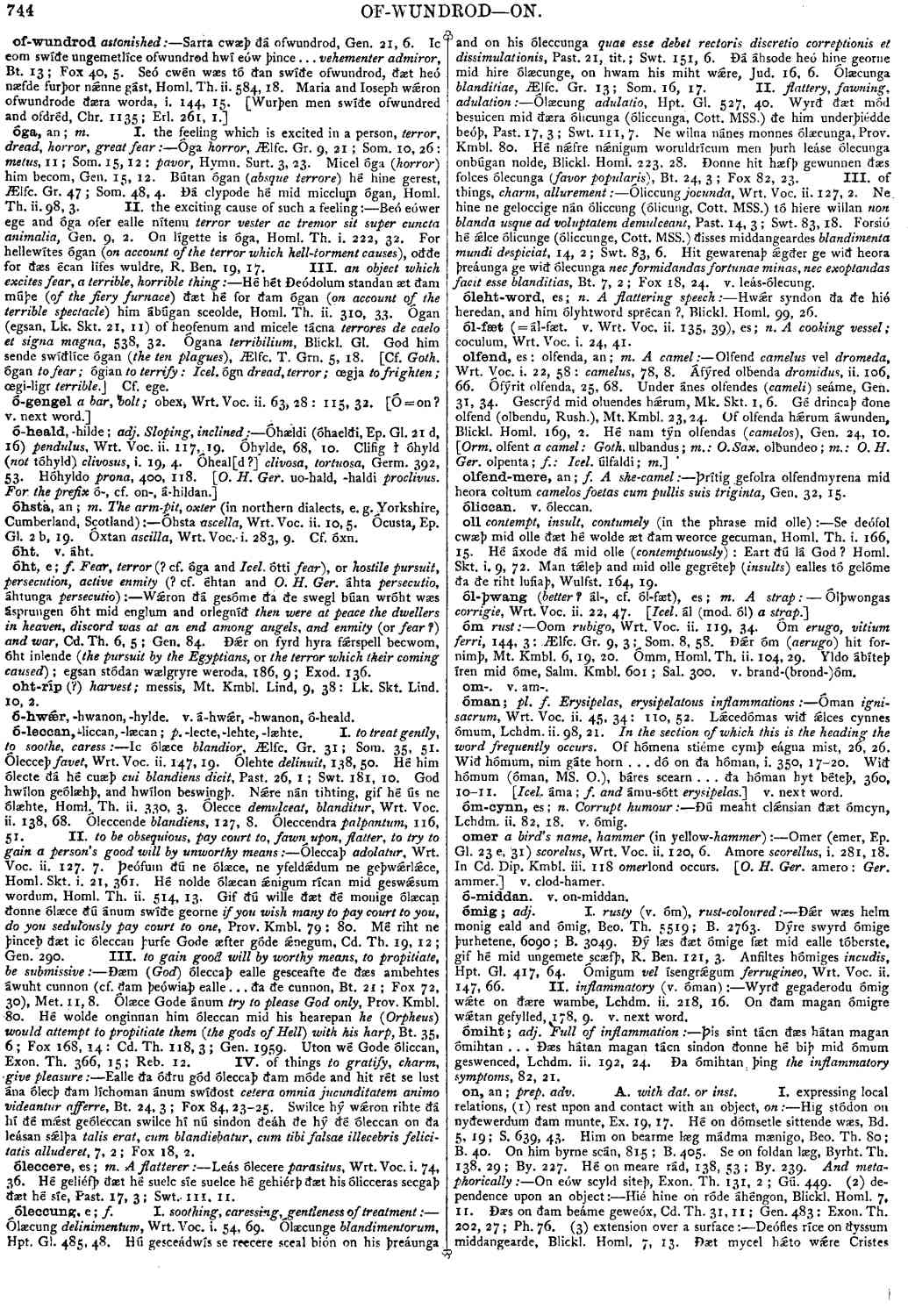óga
- noun [ masculine ]
-
Óga horror, Ælfc. Gr. 9, 21 ; Som. 10, 26: metus, 11; Som. 15, 12 :
pavor,
- Hymn. Surt. 3, 23.
-
Micel óga (
horror
) him becom,- Gen. 15, 12.
-
Bútan ógan
(absque terrore)
hé hine gerest,- Ælfc. Gr. 47 ; Som. 48, 4.
-
Ða clypode hé mid micclum ógan,
- Homl. Th. ii. 98, 3.
-
Beó eówer ege and óga ofer ealle nítenu
terror vester ac tremor sit super cuncta animalia,
- Gen. 9, 2.
-
On lígette is óga,
- Homl. Th. i. 222, 32.
-
For hellewítes ógan (
on account of the terror which hell-torment causes
), oððe for Sæs écan lífes wuldre,- R. Ben. 19, 17.
-
Hé hét Ðeódolum standan æt ðam múþe (of the fiery furnace) ðæt hé for ðam ógan (
on account of the terrible spectacle)
him ábúgan sceolde.- Homl. Th. ii. 310, 33.
-
Ógan (egsan, Lk. Skt. 21, 11) of heofenum and micele tácna
terrores de caelo et signa magna,
- 538, 32.
-
Ógana
terribilium, Blickl. Gl. God him sende swíðlíce ógan (the ten plagues ),
- Ælfc. T. Grn. 5, 18.
- [Cf. Goth. ógan to fear; ógian to terrify; Icel. ógn dread, terror; œgja to frighten; ægi-ligr terrible.] Cf. ege.
Bosworth, Joseph. “óga.” In An Anglo-Saxon Dictionary Online, edited by Thomas Northcote Toller, Christ Sean, and Ondřej Tichy. Prague: Faculty of Arts, Charles University, 2014. https://bosworthtoller.com/24406.
Checked: 0